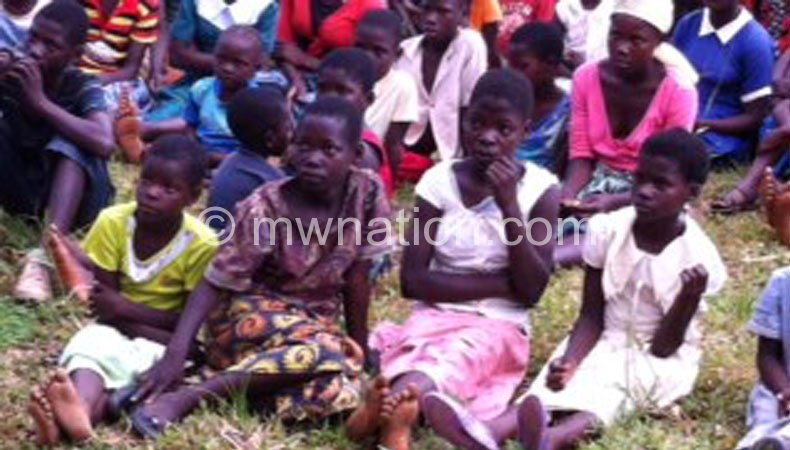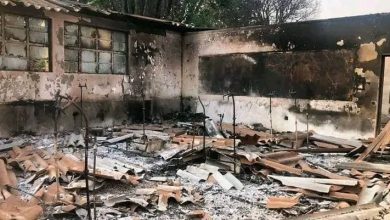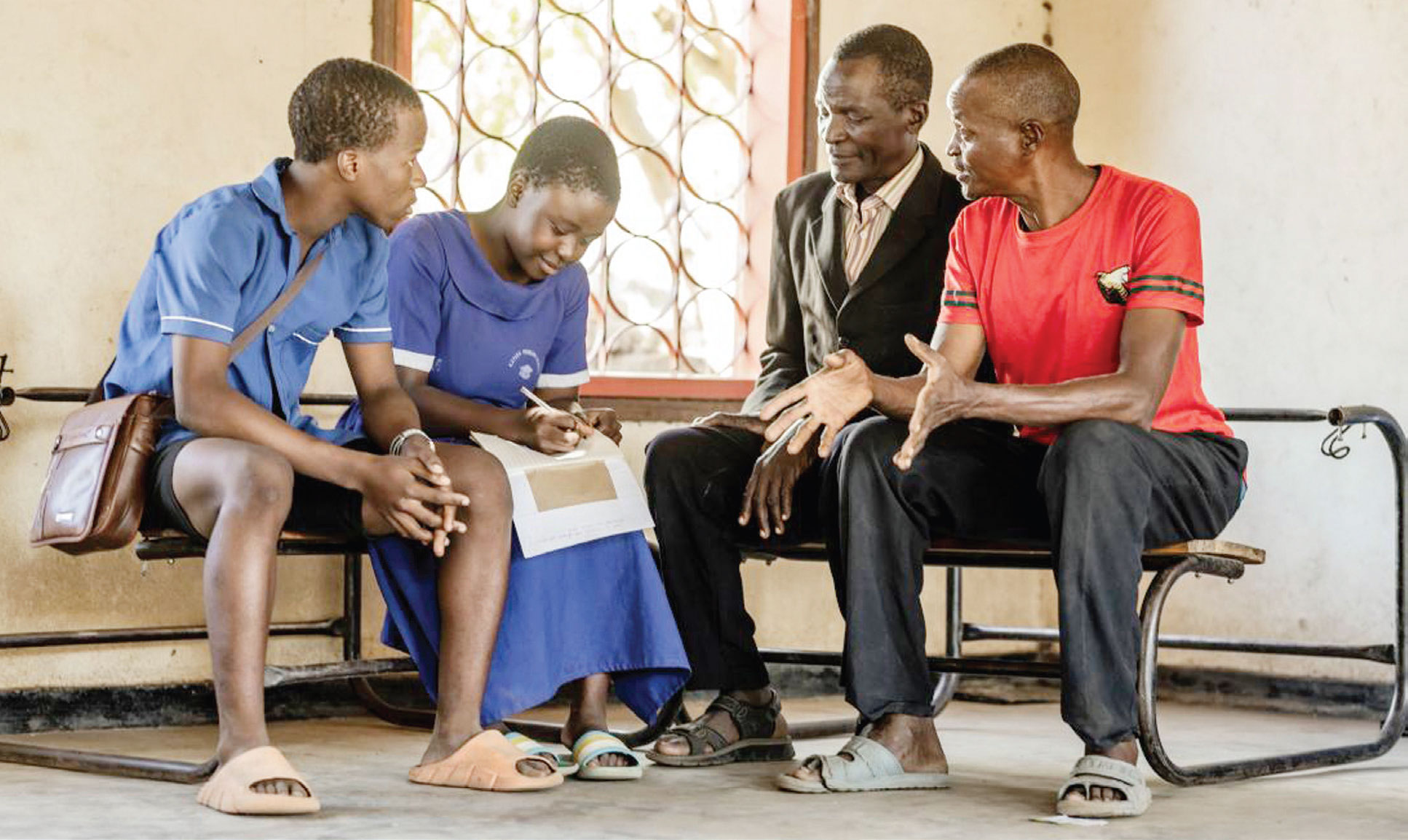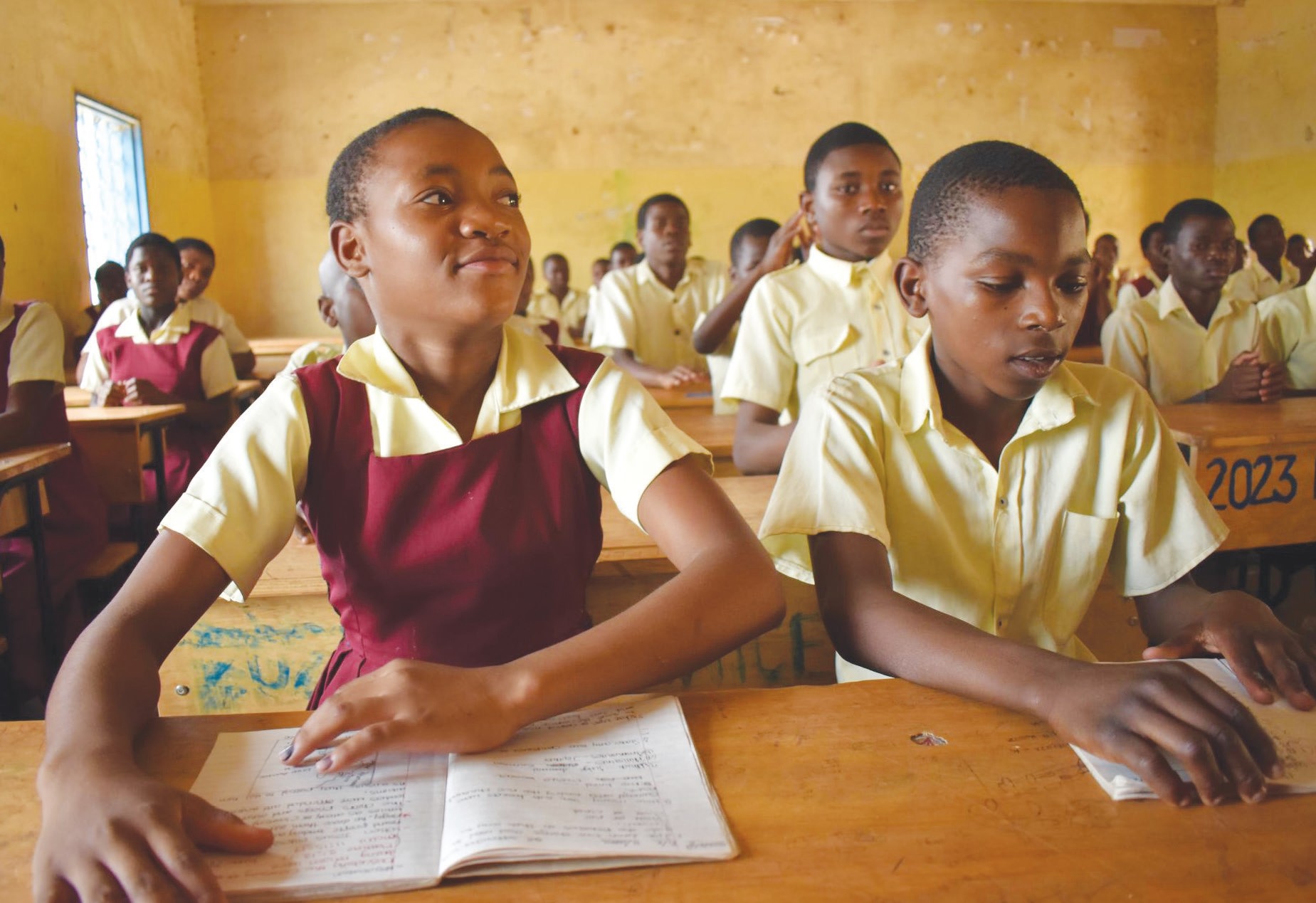Orphans toil for education
In 2003 and 2007, 16-year-old Mercy Hussein lost her father and mother respectively. Since then, she has been struggling to provide care for her sister Aisha, now 12.
This is a story of a child-headed family in Blantyre. Boarding a minibus from Gadaga to Chikuli Village in Traditional Authority Kuntaja, after Chileka Airport compound there is Useni (Hussein) Bus Stop. It is named after Mercy’s father, who until his death was a police officer at Chileka Police Station in the district. Hussein’s compound lies adjacent to the bus stop.
For survival, Mercy does domestic work in her neighbourhood. During rainy season, she mines sand from a nearby river to sell to those constructing buildings. This is how she raises her school fees, her sister’s school fund and food.
Aisha, who is in Standard Seven at Chigumukire Primary School, brings home some porridge from school courtesy of Mary’s Meals school feeding programme, which she shares with her sister in the morning.
A Form Two student at Chigumukire Community Day Secondary School, Mercy says over the eight years since she lost her mother, she and Aisha have not benefited from any interventions meant to improve livelihoods of orphans and vulnerable Malawians.
She says after the death of her mother, the two stayed with their father’s brother for few months, who later chased them after their father’s death benefits were spent.
“He said urban life is expensive and he could no longer look after us. That is why we left to live in this house that our father built,” says Mercy.
Her uncle, White Chinkono, is a builder and the breadwinner for the clan. He sometimes renders financial support to Mercy and Aisha. He lives about 30 minutes away from the two girls’ house.
Chinkono was not available at the time this story was written, but his wife, Teleza, said her husband cannot provide for all the children’s needs.
“He contributes K1 500 to Mercy’s school fees each term. But when he does not have money, Mercy pays the whole amount on her own, which is K3 500,” she said.
She explained that Mercy has a passion for education, but the lack of financial support sometimes affects her.
Mercy’s grandmother, Rhoda Chinkono, adds that during the last term, Mercy spent much of her time doing piecework to raise school fees.
Mercy is expected to be at school from 7.30am to 3 pm for classes. She usually goes to school without a proper breakfast. On lunch break, she walks home and is lucky if she finds something to eat.
“If I did not manage to get piecework at the weekend, we usually lack food. We just go to school and hope that well-wishers will give us food,” says Mercy.
She adds that it is hard to study on an empty stomach.
“And most of the times we do not have money for paraffin for our lamp,” she says.
She borrowed money from a well-wisher to pay her examination fees, but upon seeing her condition, the well-wisher told Mercy she does not have to pay back the money.
“It is by God’s grace that I met this well-wisher. Otherwise, the deadline was approaching and I had still not raised money for the examinations. I am glad that this year I will sit the Junior Certificate of Education [JCE] examinations,” smiles Mercy.
Unlike most girls who turn to prostitution to take care of their financial problems, Mercy and Aisha are toiling to get education.
Mercy says her dream is to become an agriculture field assistant and hopes well-wishers will support her education so she can realise her dream.





